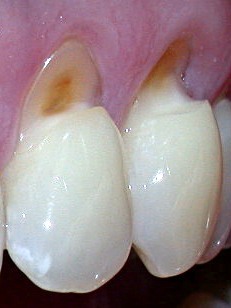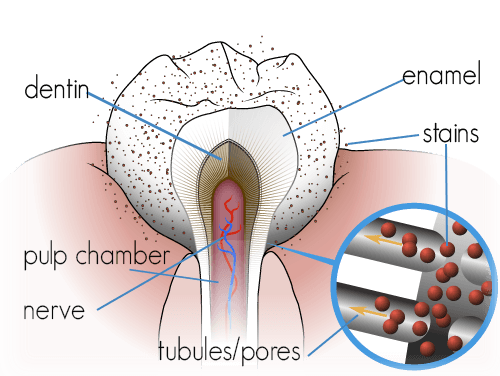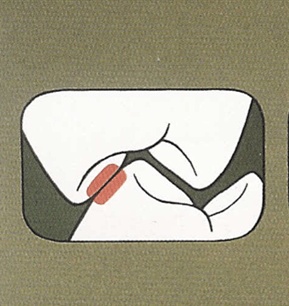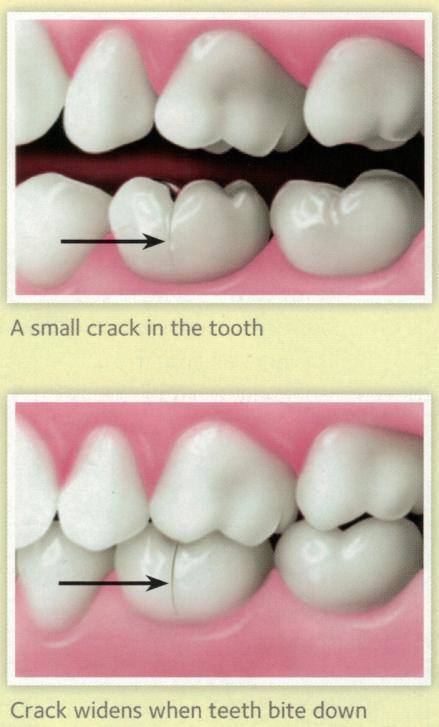We hate to disappoint you, but there is no short answer to this question. The fact is that there are lot of different reasons why one might experience tooth sensitivity and the dentist can help you to determine what is the best remedy for each patient.
Tooth sensitivity can be the result of a number of things including:
- Abfraction,
- teeth grinding,
- brushing too hard,
- demineralization,
- teeth whitening,
- bite adjustments, and
- cracked teeth.
Abfraction – caused by teeth grinding and/or brushing too hard.
Teeth grinding – which causes gums to recede and root exposure and can be helped with the use of a Night Guard, or Occlusal Guard during sleep. Brushing too hard – brushing too hard can begin to deteriorate the exposed roots.

De-mineralization – when the teeth loose vital nutrients through a natural de-mineralization process and can be helped with the use of at-home medicaments like Fluoride trays, fluoride varnish, and MI Paste.

Teeth whitening – teeth are robbed of vital nutrients during the whitening process, the use of MI Paste can help. The tubules of the teeth are filled with a high concentration of whitening gel which can cause sensitivity.

New restorations that need adjusting – if your bite is thrown off after getting new restorations (like fillings and crowns) it can cause you to be very sensitive when biting. The teeth no longer close in a comfortable position and it can cause sensitivity, headaches, and general uncomfortability.

Cracked tooth – food and liquids can get into the tooth and reach the pulp causing sensitivity. Patients may or may not even realize there is a crack in their tooth as they start small.

Contact the Gateway Oaks Dental team in Natomas, Sacramento, CA, to schedule an exam by calling (916) 649-0249.
